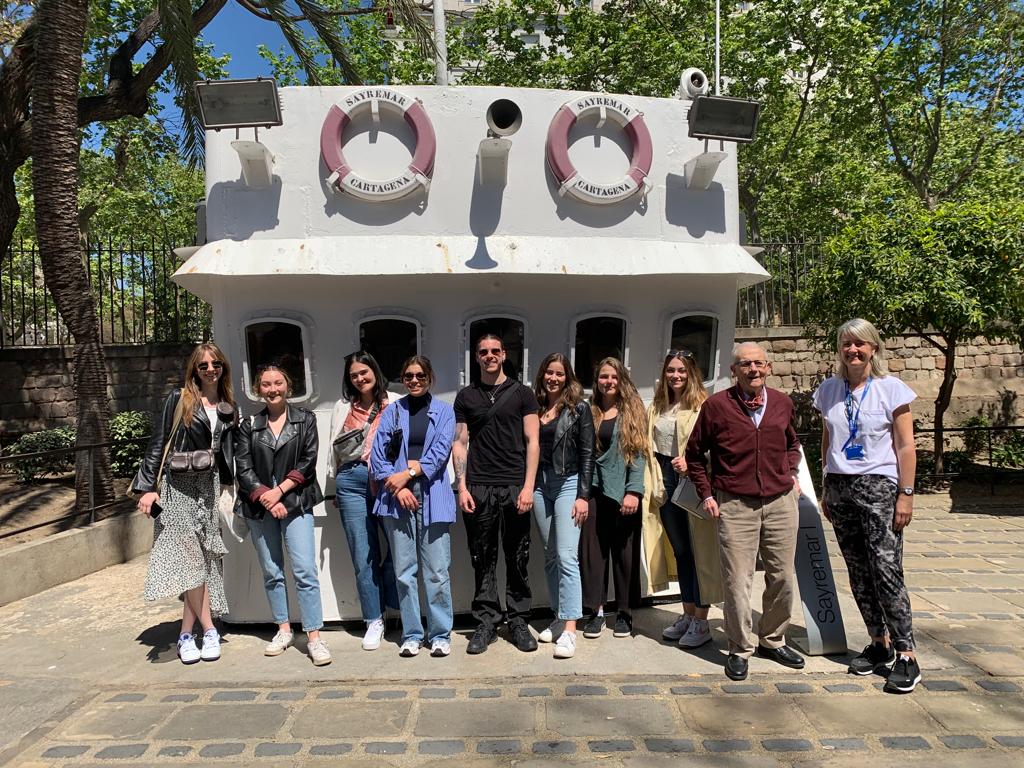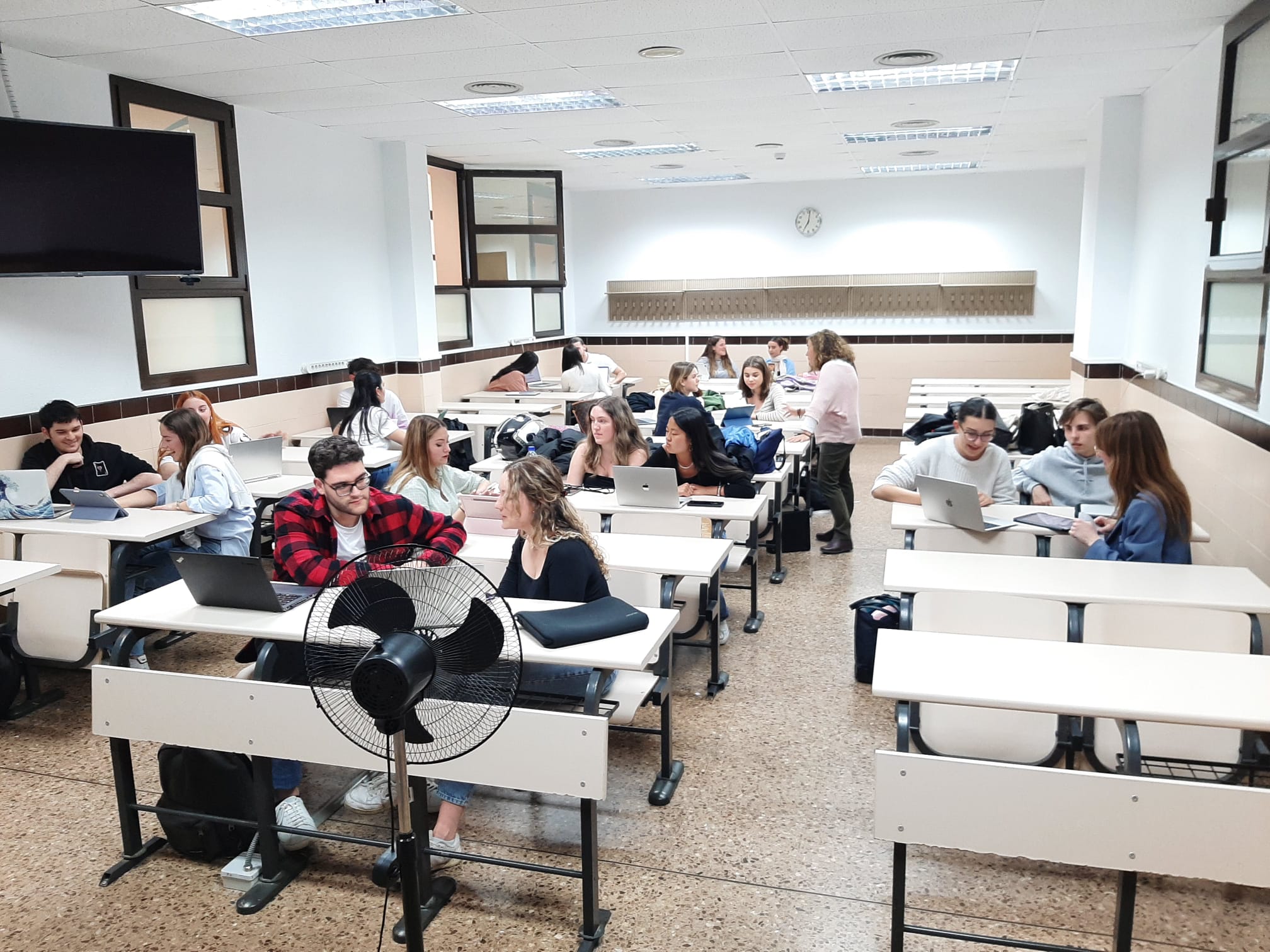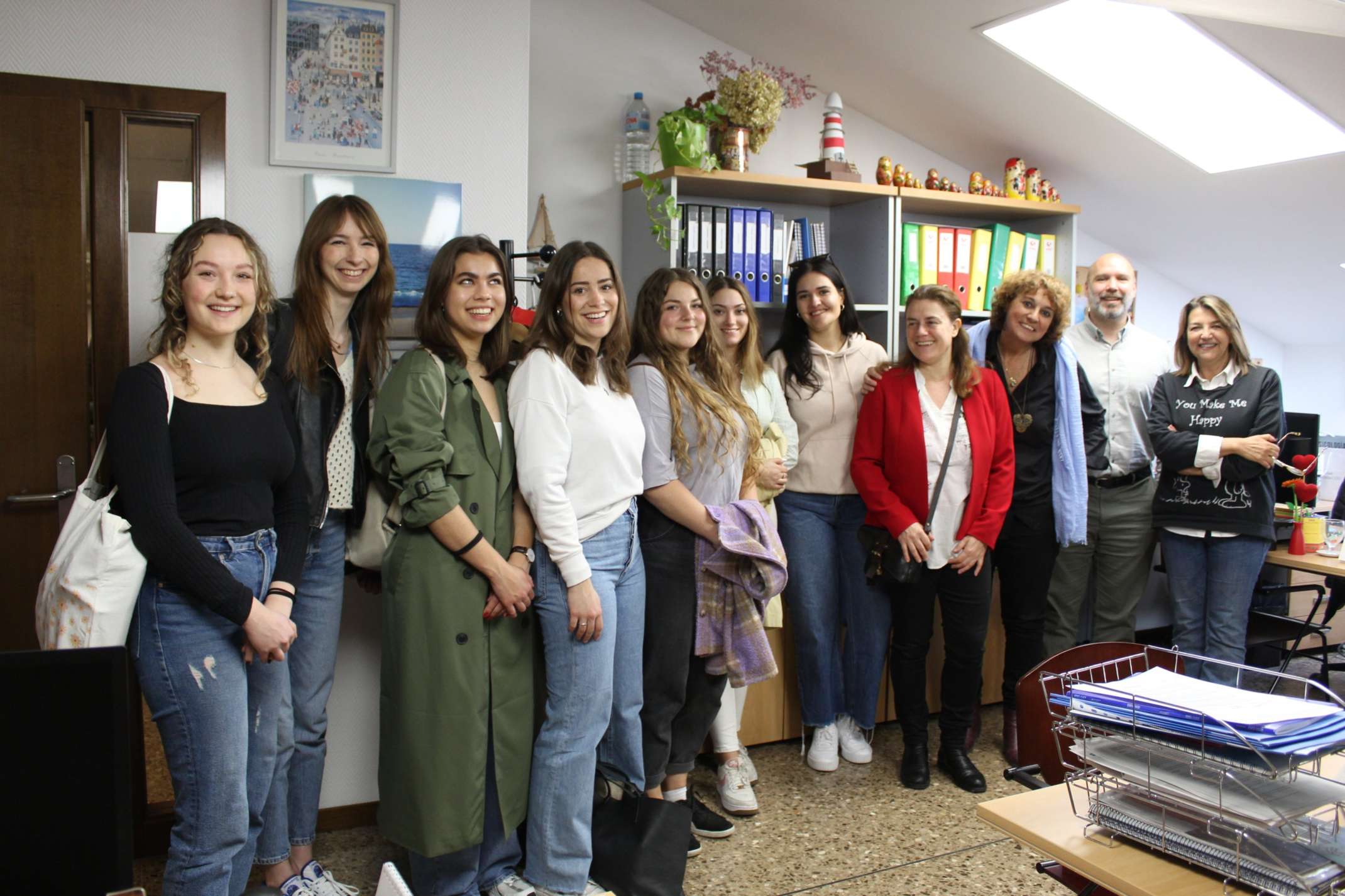
Short Term Mobility to Spain (Barcelona)
Short Term Mobility to Spain (Barcelona)
As part of the project, all 22 participants of the Business Spanish 6 / Spanish 1+2 course from Augsburg worked together with students of Human Resource Management in Barcelona to compare the rights of employees in both countries. The project consisted of three phases:
Phase 1 from 1.04.-17.04.23: Preparation phase and virtual exchange
In this phase, first an individual and then a group study was conducted on six key points of the rights of permanent employees in Germany. Divided into 8 groups (each with one mobile participant), the students first carried out a short research on German labor law and then created a presentation per group with the information they found.
At the same time, the students in Barcelona prepared themselves and examined the labor rights of permanent employees in Spain. As part of a Zoom video conference, students from both universities met and began an initial exchange of information on labor rights in both countries in small groups.
Phase 2 from 18.04.-22.04.23: Face-to-face phase in Barcelona
The 8 mobile students from Augsburg University of Applied Sciences took part in Prof. Lasaga's Human Resource Management course and acted as ambassadors for their groups from Augsburg. Divided into 8 groups, they deepened the exchange on labor law in both countries and worked out similarities and differences with the Spanish students.
Phase 3 from 24.04-03.01.23: Report to the group in Augsburg and final report on Spanish and German labor law
On their return to Augsburg, the 8 THA participants who had been in Barcelona again acted as ambassadors, meeting with their respective original groups of Business Spanish 6/ Spanish 11+12 and showing them what they had worked on in Barcelona.
The 8 small groups each wrote a final report highlighting the differences between Spanish and German labor law. The students on Prof. Olga Lasaga's course at the UAO also wrote a comparative final report.
This complex structure of the project made it possible for all course participants to benefit from the exchange - even those who were unable to take part in the on-site mobility in Barcelona.
Excursion program in Barcelona
In addition to the exchange project, an extensive program awaited the mobile participants in Barcelona.
On the first day, Vice-Rector for Research and International Relations, Alessandro Mini, welcomed the group and introduced the university and its activities. Teresa Farriols, Montserrat Pinto and Javier Plaza from the Career and Internship Service then gave an insight into their work. In addition, the students took part in two courses throughout the week: Human Resource Management by Prof. Olga Lasaga and Marketing by Prof. José Luis del Olmo.
In addition, Ms. Angrisano organized an extensive program in the city of Barcelona with a wide range of activities that catered to the different interests of the participants from International Management, Business Psychology, Interactive Media and Architecture.
For the economic aspect, the port of Barcelona was visited. After a boat tour through the port, the participants learned interesting facts about how Europe's ninth-largest container port works and about the ecological aspects of transporting large quantities by sea compared to land and air.
During a guided tour of the Torre Bellesguard, a house designed by the famous architect Antoni Gaudí, which is located on the heights of Barcelona near the Abat Oliba University, the students learned a lot about the Modernisme architectural movement. The visit to the Pablo Picasso Museum was also dedicated to art, and of course the students also had free time to explore the city themselves.
The visit was rounded off with the festival in honor of the city's patron saint, Sant Jordi, which traditionally takes place on 23 April. On this special day, Barcelona is decorated all over with red roses and there are long rows of stalls full of books in the streets.
During my one-week stay in Barcelona, Spain, I was able to improve my language skills and it helped me to speak more freely and no longer be afraid to talk to native speakers.You also get on very well with the language, whether in the lectures, which are held in Spanish, or in everyday life.When it comes to preparing for your semester abroad in Spain, you know that there will always be people to help you.So you are never left alone.
Barcelona is a great and open city that is very diverse and has a lot of culture to offer.
Diana Maria Stirbu (participant)





